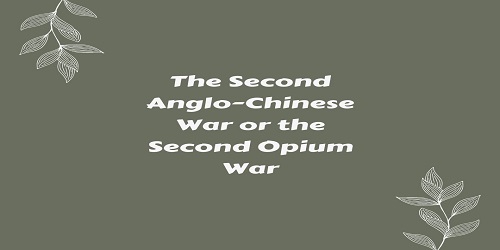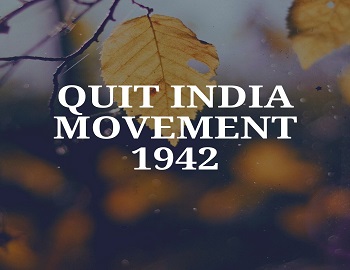The Second Anglo-Chinese War:
For the review of treaties, both France and England wanted to wage a war against China at any cost. The incident of the warship Arrow and the murder of the Catholic priest invited the war. British forces attacked and captured Canton in 1856. After the conquest of Canton, the British forces marched towards the north. Napoleon III wanted to revive the Anglo-French friendship of the Crimean War and both countries to jointly mount an attack on China. Hence, the war was declared. The Indian War of Independence broke out in 1857 and delayed the Chinese attack, but after a small war in 1858, China gave in and agreed to the treaty.
Treaty of Tientsin and Peking Agreement- Peace talks between the Chinese officials and the representatives of France and England started at Tientsin but the final approval of the new treaty could only be given by the government at Peking. Although the terms and conditions of the treaty were agreed upon at Tientsin, consent from Peking could not be had. Russia and America had joined this Anglo-French expedition but in view of clear instructions to keep away war, they did not participate in hostile activities. America followed the policy of peaceful agreement. The foreign powers wanted to rupture the Chinese feelings of supremacy of its court and conclude the treaty in the presence of their ambassadors at the capital. So Britain and France, once more resumed War against China and fighting the Chinese forces reached near Peking. The Chinese army failed to contain the joint forces and Peking was captured. The Manchu emperor was forced to flee Peking and seek shelter at Zehol. The British and French forces destroyed the summer palace outside the walls of Peking in retaliation for Chinese atrocities against Allied prisoners. China had no other alternative but to enter into a treaty. After the war which continued for four years, from 1856 to 1860, Peking signed a treaty with foreign powers. The main points of the treaty are:
(1) China opened 11 more ports for European trade and residence. These ports spread from Nuchwang (in Manchuria) in the north to Swato in the south. Some ports were on the river Yangtse. Now the total number of free ports rose to 16.
(2) Kowloon passed under British domination.
(3) Ships of Western countries were allowed to sail in the river Yangtse.
(4) The ambassadors of Western nations were now permitted to reside in Peking.
(5) The foreign pass-port-holders could now freely travel in China wherever they liked.
(6) The foreigners’ rights of extra-territoriality were now fully explicated in criminal cases.
(7) China agreed to pay war indemnity to the tune of 4 million coins to Britain and 2 million to France.
(8) Customs duty was imposed on the import of opium. This legalized and regularized the opium trade.
(9) The Chinese government assured to provide as much security as possible to the life of foreign missionaries in China.
(10) The French Roman Catholic priests were authorized to purchase land wherever they liked besides these 16 ports and to build Churches there.
(11) The schedule of customs duty was revised and a five percent surcharge on current prices was suspended.
Till just after the Second Anglo-Chinese War only England, France, America, Russia, Norway, and Sweden had signed treaties with China, but during the next 30 years eleven more countries signed treaties with China. Eight of these were European countries Prussia, Denmark, Netherlands, Spain, Belgium, Italy, Austria, Hungary, and Portugal; two were independent South American nations, Peru and Brazil, and the only Asian country was Japan. All these countries obtained trade facilities from China. Economic extension aroused European countries’ ambition for political plunder. Both these tendencies- economic extension and political plunder had a parallel development for the next few decades. As a consequence of these treaties, China’s prestige steeply declined, but its attitude towards foreigners remained unchanged. Chinese empire as well as its citizens could not either forget or forgive the humiliation, plunder, and destruction of their national monuments by the wild and barbaric foreigners. China never accepted the system foisted on her from the outside.
Consequences of the War- As a consequence of the Chinese War with France and England the gates of China were flung open for European traders. China lost control over its economic policy and its exports and imports passed under the control of foreigners. The establishment of the foreign Inspectorate of customs duty deprived her of her rights over an important policy such as the customs duty. It was an open infringement of her sovereignty, but China was helpless to do anything in this regard. Day by day the Manchu dynasty became economically dependent on Western Countries who exploited the situation for the extension of their imperialistic designs. Its military weakness also became well-known. Foreign trade exploited the situation and treated China as a subject country.









Comments (No)